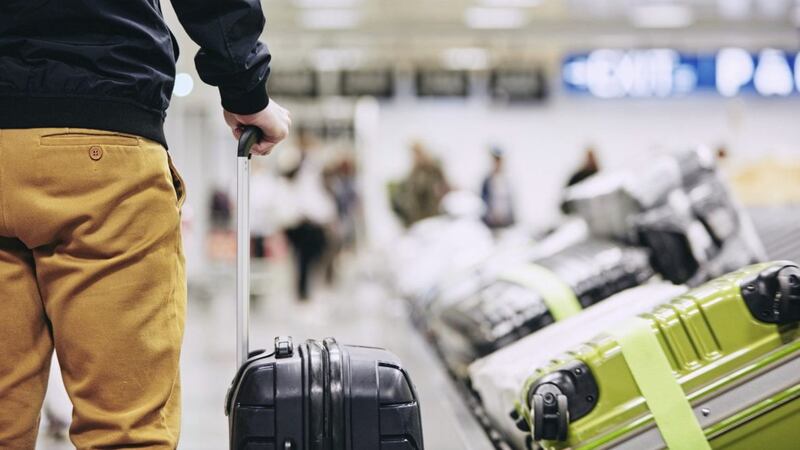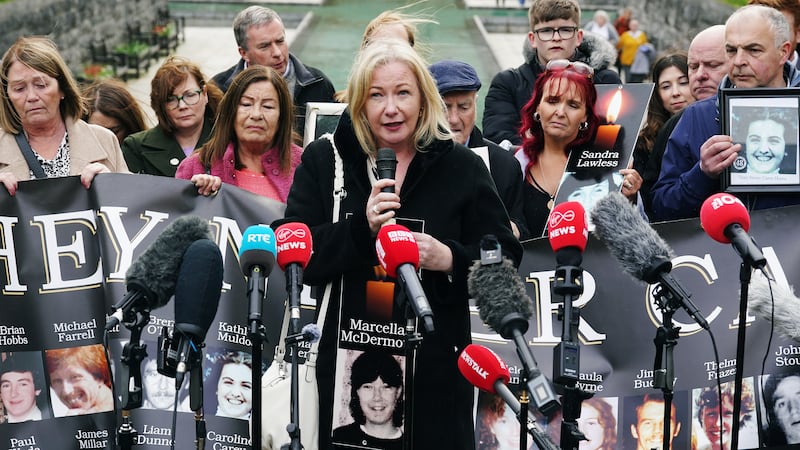Families hoping to be reunited at Christmas have been dealt a blow amid a fresh warning on the safety of international travel.
The Republic's Chief Medical Officer Tony Holohan has told a government committee travel for non-essential reasons "is not safe".
He was responding to questions on the feasibility of international travel between now and Christmas time for people wishing to visit their families.
Dr Holohan said: "The situation at the moment is that international travel of a non-essential nature is not safe.
"Movement of populations around areas with high experience of this disease, particularly Europe and North America, in and out of this country is not safe."
The advice for that period could change, as it "relates to a whole lot of factors that are unknowable at this point in time", Dr Holohan said.
But he ruled out a situation where people returning home to visit their family at the end of December could be classed as "essential" travel.
The Republic is to adopt a new EU traffic light system for international travel on November 8.
This will see countries designated as green, orange or red - with additional restrictions such as testing and quarantine required for people arriving from orange and red countries.
The National Emergency Public Health Team (Nphet), which Dr Holohan chairs, has been advising government in respect of those measures.
They have advised that international travellers should restrict their movement for five to seven days if testing is introduced on flights.
A symptom check and test should also take place on day five of that period, NPHET told the Oireachtas committee on transport.
This would be the "most effective method to contain importation of the virus", but could still miss up to 15% of imported cases.
Dr Cillian De Gascun, the director of the National Virus Reference Laboratory at University College Dublin, expressed reservations on the use of rapid antigen testing at airports, saying their sensitivity rate was only 80%.
"You will miss one in five cases, and that's not good enough," he told the committee.
Dr Holohan said that Nphet were working to facilitate the government's decision to sign up to the EU traffic light system.
He said: "If I was to guess I'd say there won't be many countries on green by the time we're talking about, Christmas flights.
"It will be difficult for many other countries to be anything other than red at that time."
He said Nphet has to take account of the fact that transmission rates in the Republic are declining, while in Europe they are rising significantly.
He said: "The vast majority of countries are red and getting redder. That's the current situation. That's the reason we're concerned about international travel.
"The whole of Europe is experiencing a very significant resurgence of the disease.
"This country has seen a significant reduction in terms of its seven- and now 14-day incidence, consequent of the measures that are in place in this country.
"Comparing our experience to those of Europe is that the level of disease transmission from this country is improving, at a point when the vast majority of countries in Europe are disimproving.
"We simply have to take that into account in terms of our public health advice to people who are making plans around travel."
However, Dr Holohan was optimistic that the Repubilc may be able to relieve some of the current level five restrictions as planned on December 1.
He said: "We anticipate that would should be in a position to change that on the first of December.
"We're optimistic that we'll find ourselves in a situation to recommend a change in the measures that are in place at that point in time."
He said if that were to affect the advice on international, people would be informed.
And he added: "At the moment that advice is: if you're thinking about non-essential travel, don't do it.
"That's very clear, we're advising against non-essential travel on public health grounds. If we think that can change, we'll make that advice available."







